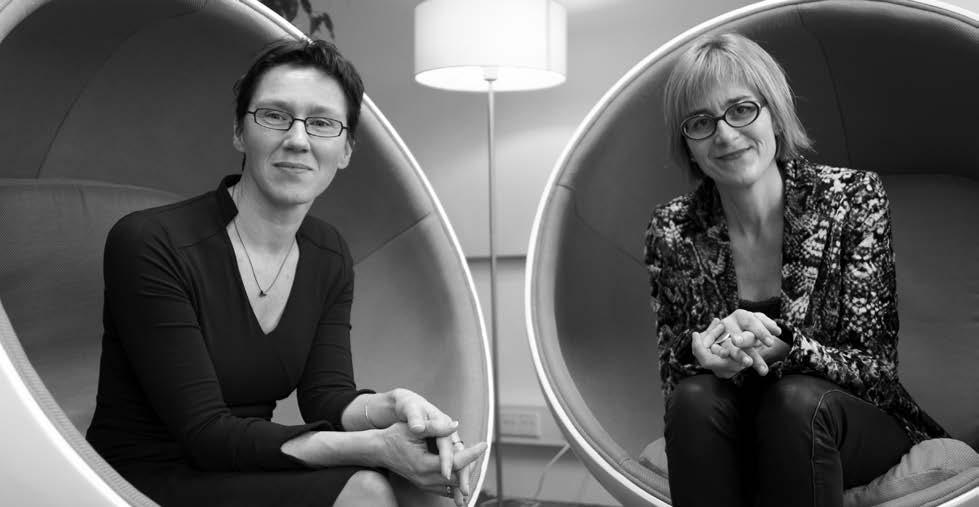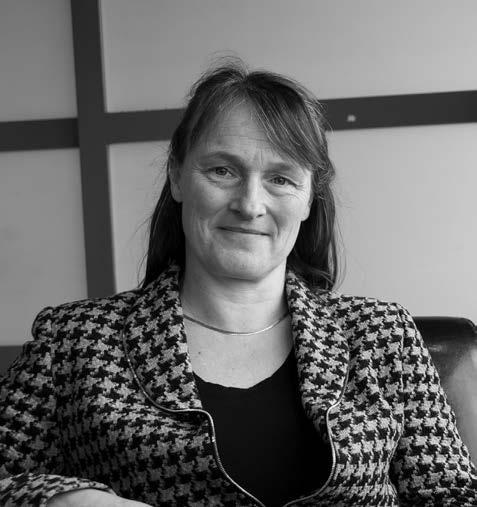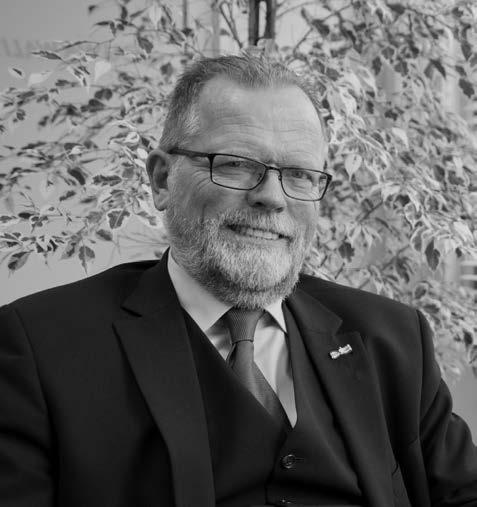
5 minute read
Accountants in transition Towards recovery of trust
A talk with Jan Hommen, CEO of KPMG Nederland
‘Trust is increasingly less given in advance. The politicians have been experiencing this for quite some time. Bankers, insurers and civil-law notaries have noticed this as well. Now it is accountants too.’ This is the clear language of Minister Dijsselbloem during Accountants’ Day 2014: the quality level of Dutch accountants’ firms must be restored in the short-term. But how to regain the trust of a society? We asked Jan Hommen, CEO of KPMG Nederland about this.
What does trust mean?
Trust is something you receive. Someone has to place trust in you. This only happens when you provide good work. For an accountant this means that the audits follow a sound process and ultimately lead to a reliable audit opinion. That is to say: a statement which, when the accountant places his signature under it, guarantees that the annual accounts have been formulated with due care, are a faithful translation of the reality and give an accurate representation of the internal organisation.
Obviously things sometimes go wrong. When I was working in America, for instance the Enron scandal took place. The respective accountant belonged to one of the oldest and most renowned firms in the United States, but at the end of the story had apparently wrongly issued an unqualified audit opinion for the annual accounts and to have destroyed certain files. This entailed all the associated consequences, for the client as well as for the accountants’ firm. This firm was unable to justify the trust of society. Many good auditors’ opinions are obviously issued every year but they do not appear in the media.
Back to base: quality and integrity
How could all this have gone so wrong? That is the first question to ask. In the nineties there was gigantic growth. This rattled the world somewhat. Organisations went beyond themselves, started to do more than they actually could. This led to all kinds of excesses. It is something that can be seen in many areas, even in accountancy. Accountants let go of the standards they always imposed upon themselves. They created expectations which they could not justify. And I think it also played a part that people became too lenient within organisations. That means sooner or later you will face problems.
‘Sun King’ behaviour is no longer tolerated in this society. We will have to adopt a modest attitude. That also better suits the role of an accountant. The art is to return back to base: who are you and what is your role in this society? Quality and integrity are the cornerstones in this respect. Firstly, it is obviously all about providing an excellent product as an organisation. This begins with formulating new frameworks and standards, with new quality requirements. And then you should keep each other strictly to this: and make sure that everybody in the organisation remains within the set frameworks and standards. Keep a straight back even if the client exerts pressure to approve certain things or if something has to be done very quickly. It’s about integrity. Only in this way can the trust of society be regained.
Culture and behavioural change
The authorities tightened up legislation and regulations and supervision, and to a certain degree this is necessary, but the primary responsibility lies with the industry itself. I think that the accountants responded very well to this situation here in the Netherlands by taking themselves the initiative to change. The Netherlands Institute of Chartered Accountants submitted a proposal to the Minister which describes how we would want to and ought to operate. The politicians responded positively to that: almost all the recommendations have been accepted and will soon appear in legislation and regulations. In this way much more will be achieved than imposing rules from the outside.
It is now up to us to put these words into deeds. This also requires a change in culture and behaviour. Partners play a crucial role in this. They have to complement and support each other, even where it goes wrong. Because the moment you consider the problem of another as a joint problem and also want to take the responsibility for it, you transcend yourself. We are re-discovering this. In addition, it is important that partners in the organisation give the right example in all respects and that they also help the young and less experienced employees to achieve a higher level. This takes time. But if all this succeeds, you will have a great organisation!
Openness and transparency
Accredited organisations are actually in the same position as accountants: they are organisations that derive their licence from an assignment they receive from society. So they should also have a clear picture of what this license and assignment entails, and will have to move within this picture. My main advice? Make sure that you have excellent processes in place to carry out your task. Engage capable people and give them further training if there are shortcomings. Assess them in an objective, strict way and don’t take it lightly. Because if you take it lightly, an organisation will see immediately that you are not serious. Invest continuously in innovation. And then deliver a product, or rather: a solution. Explain this product as well. Be transparent about your objectives, about the measurements you carried out and about the final result. And remain independent: do not compromise on the set standards and frameworks. This is the way to deliver quality. If you do this consistently, trust will grow. For that matter, this trust must be given again each time. So you must continue to prove that you are worthy of this trust.
If we extrapolate this further you could compare the role of the RvA with that of the Netherlands Institute of Chartered Accountants and the Netherlands Authority for the Financial Markets, with the difference that the RvA itself does not formulate the rules. Also as the ‘guardian of the system’ you must continuously ask yourself: are we sufficiently innovative? Measuring instruments get better all the time, measurements more and more refined. This leads to new insights and new standards. It is essential that you go along with this and pool your thoughts; that you continue to invest in people but also in technology and processes. And that from time to time you show what you are doing.
Major opportunities for improvement
The quality of our work must increase: this is the main focus for the coming period. The next review of the Netherlands Authority for the Financial Markets simply should no longer form any problems. We will obviously be faced with new legislation and regulations on the basis of recommendations from the sector itself but at KPMG we also consider how we can implement improvements in other areas. For instance we want to make our audit reports more transparent to give more insight into what plays within an organisation, and clearly communicate what is and what is not included in an audit, because often there are misunderstandings in this respect. We are examining also the ways in which we can put increasingly more added value into our services. Moreover, visibility is a major point of attention: apart from the team the respective partner should also be present at the client as much as possible.
Such measures help to create a better product. But at the same time: where people are working, mistakes can be made. I think this is normal. But it is all about not making the same mistake twice so that you learn from your mistakes. And as partners we should try to improve continuously, by quickly ascertaining problems and by jointly searching for a solution. Sometimes it can be very useful to show that you are struggling with something. Accountants kept quiet for almost twenty years. That does not work. The point is to have the courage to come forward, explain what you are doing and why you do it in that way. Openness and transparency: it always works!
Jan Hommen was appointed in 2014 as CEO of KPMG Nederland. He has over forty years of experience at the top of the Dutch business sector. Previously he has for instance been the CEO of the ING Group, CFO and Vice-Chairman of Philips and CFO of the Alcoa aluminium group in the United States. In 2013 he was appointed Commander in the Order of Oranje-Nassau due to his efforts in the financial sector after the crisis of 2008.





